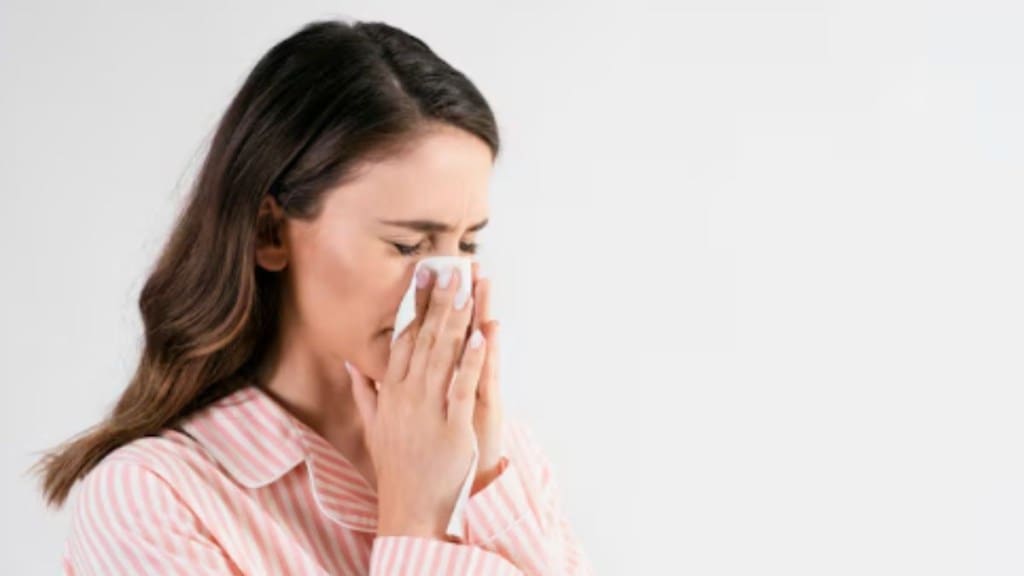Delhi woke up under a thick, grey blanket of smog the day after Diwali, with air quality plummeting to the ‘very poor’ category. The Air Quality Index (AQI) stood at 399 at 4 pm on Tuesday, causing alarm across Delhi-NCR. Despite restrictions on firecrackers, pollution levels increased like anything, with 36 out of 38 monitoring stations reporting readings in the ‘red zone.’
While most residents notice coughing, wheezing, or eye irritation immediately, doctors are warning of hidden short-term symptoms and long-term lung damage caused due to constant exposure to smog.
Uncommon symptoms that signal danger
Dr. Ankit Kumar Sinha, Senior Consultant and Unit Head, Pulmonology at Max Super Speciality Hospital, Vaishali, says, “Apart from the usual cough, sore throat, and tight chest, we are seeing patients with unusual symptoms. These include a metallic taste in the mouth, recurrent nosebleeds, unexplained skin rashes, pain in the nasal cavity, new floaters in the eye, dizziness, and even cognitive fog caused by low oxygen levels. Some people experience acute sinusitis or ear blockages due to trapped toxins.”
These symptoms may seem minor or unrelated, but they signal that toxic pollutants are affecting the body beyond the lungs.
Long-term impact of ‘very poor’ AQI levels on lung health
The danger doesn’t end once the smog clears. Fine particulate matter (PM2.5 and PM10), nitrogen oxides, and other harmful chemicals deposit in the lungs, slowly damaging delicate lung tissue. Dr. Sinha explains, “This can lead to inflammation, chronic symptoms, and slowly reduce lung function. Long-term exposure can worsen asthma, chronic bronchitis, and age-related lung deterioration. In severe cases, it may contribute to irreversible lung damage like pulmonary fibrosis or increase the risk of lung cancer.”
Children, the elderly, and people with pre-existing lung conditions are most at risk, but even healthy adults are not immune if exposed repeatedly.
How to protect yourself from pollution indoors and outdoors
Doctors explain that prevention is crucial, and small lifestyle changes can make a big difference. People are advised to wear N95 or equivalent masks when stepping outside on high pollution days and avoid outdoor exercise like jogging or running, as it forces the body to inhale more harmful particles. Indoors, keeping doors and windows shut and using air purifiers can help reduce exposure, along with adding air-cleaning plants such as Snake Plant or Areca Palm.
Dr. Sinha warns that anyone experiencing a persistent cough, chest pain, or breathing difficulty should not ignore it and must seek medical care immediately, as early treatment can protect the lungs and prevent serious complications.

